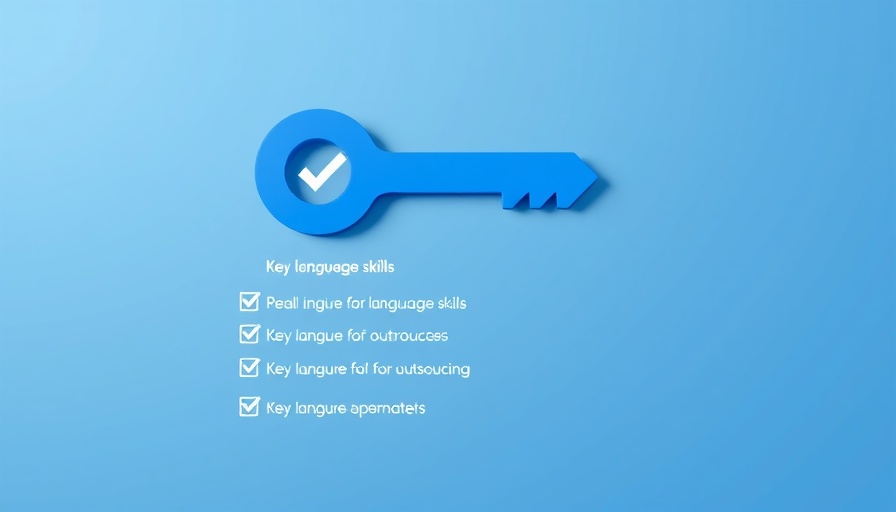
The Language Factor in Outsourcing Success
In the world of outsourcing, language transcends mere communication—it shapes the very foundation of effective partnerships and strategic operations. Business owners must understand how the official language of their outsourcing partners impacts not just communication, but ultimately, the success of their operations.
Understanding Official Versus National Languages
A critical distinction in the landscape of outsourcing is understanding the difference between official languages and national languages. Official languages are those recognized by a country’s government for legal, administrative, and business functions, facilitating smoother communication between organizations and their clients. For example, while English serves as the dominant working language in many countries, others, like India, use Hindi in conjunction. This multilayered linguistic structure mandates that businesses remain vigilant about their language strategies.
Language Proficiency: The Key to Collaboration
Effective outsourcing is contingent upon more than just the act of speaking a common linguistics; it requires proficiency in that language, including an understanding of cultural nuances and idiomatic expressions. Outsourcing partners, especially in regions with multiple languages, like Canada or South Africa, must be adept at not just casual conversation but also the subtleties involved in technical communication, ensuring that contractual obligations and customer service interactions are both clear and effective.
Turning Challenges into Strengths
While language barriers can pose challenges to communication, they also present unique opportunities for businesses willing to embrace multilingualism. Companies that capitalize on language diversity can enhance their global outreach, foster stronger customer relationships, and improve operational efficiency through a deeper understanding of local markets. For instance, businesses utilizing teams fluent in multiple languages, such as Chinese-English or Spanish-Portuguese, can significantly reduce misunderstandings and enhance collaborative efforts to serve customers better.
Local Market Engagement Through Language
Businesses aiming to penetrate local markets need to consider not only the official language of a region but also indigenous languages that resonate with local audiences. In regions where indigenous languages coexist with official tongues, integration of these languages into service offerings can bolster trust and loyalty among potential customers. This strategy not only aligns with the cultural identity of the audience but can also provide a competitive edge, particularly in sectors like e-commerce and healthcare.
The Strategic Advantage of Multilingual Outsourcing
Leveraging language as a strategic asset can affect market positioning and competitive advantage. Multilingual teams can provide tailored support that meets diverse customer needs across different regions. For instance, in the fast-paced e-commerce sector, offering customer support in customers' native languages enhances user experience, fosters inclusivity, and significantly boosts conversion rates.
Conclusion: Make Language Work for You
In the global economy, where cultural competency is more crucial than ever, understanding and strategically employing language can be a game-changer for businesses looking to succeed in outsourcing. By recognizing the significance of language and effectively managing multilingual operations, companies can better connect with audiences worldwide, streamline communications, and enhance their brand message. The right outsourcing strategy rooted in linguistic alignment not only mitigates risks but also paves the way for sustainable growth. Consider exploring multilingual outsourcing services to unlock your business’s full potential.
 Add Row
Add Row  Add
Add 




Write A Comment